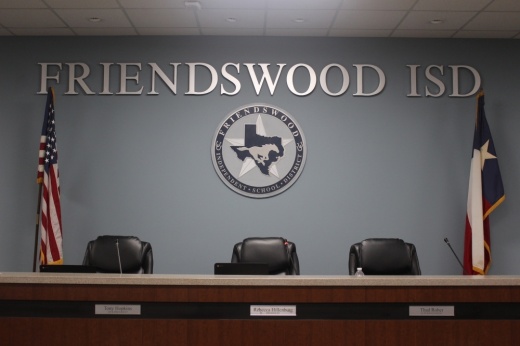Kim Cole, assistant superintendent of secondary teaching and learning, along with four district teachers, presented the plans to the board of trustees during its Aug. 8 meeting. Across Friendswood High School and Friendswood Junior High School, 43 teachers have opted to use the system, with all core content areas covered to some degree at each campus.
The district’s Leading Learners team spent the past two years researching and developing the system, Cole said. The team assessed what a grade actually represented —for example, a grade of 94% did not represent 94% mastery of the material. Rather, it was influenced by behavior-related activity such as turning in an assignment late or completing an extra credit assignment, Cole explained. Their goal was to make grades more accurate by separating mastery of content from behavior.
“We want to take this opportunity to create our own system within each each individual classroom from the grassroots, one that’s focused on learning, feedback, growth, relearning and accurate communication about the mastery and the skills that are needed to achieve that mastery so that our students can take ownership in the growth in all areas,” Cole said at the Aug. 8 meeting.
The team identified three characteristics that made students successful both in the classroom and later in college or the workforce: communication, perseverance and responsibility. They developed a Success Standards rubric incorporating these characteristics and outlining criteria for evaluating if students “Meet”, “Approach” or are still “Developing” them.
“If you're going to be successful in life, if you're going to go into society and contribute, you have to be responsible; you have to be persistent; and you have to be able to communicate,” FHS algebra teacher Monica Wilder said at the Aug. 8 meeting.
The teachers believe that separating content and behavior will allow them to clearly communicate how each influences a student’s overall grade.
“We have more authentic conversations with the students so that they are able to see how the behavior directly affects their grade,” FHS science teacher Madeleine LeBoeuf said at the Aug. 8 meeting.
Participating teachers will have autonomy with how they carry out the plan but will adhere to the same set of core values, Cole said. Parents and students will see the changes reflected in Skyward, the student management system used by FISD, for classes with a participating teacher. Assessments will be broken down into three categories: formative and summative, which will be weighted at a combined total of 90%, and the Success Standards category, weighted at 10%.
“We are evaluating academic knowledge, and we are evaluating behavioral knowledge; it’s just being presented in a more clear fashion,” Cole said.
Student performance in these areas will be assessed no less frequently than every three weeks and reported in the gradebook as “Meets,” “Approaches” or “Developing.” Teachers will be able to leave comments in Skyward explaining why they assessed the student at that particular level.
Every nine weeks, the teacher will evaluate the student’s growth in the three categories and use their professional judgment to assign the student a final, 10%-weighted Success Standards grade. “Meets” will be considered 100%; “Approaches” an 80-90%; and “Developing” a 70%.
“Hopefully that’s going to spark more conversation, more communication, more student conferencing and more parent understanding,” Cole said.





